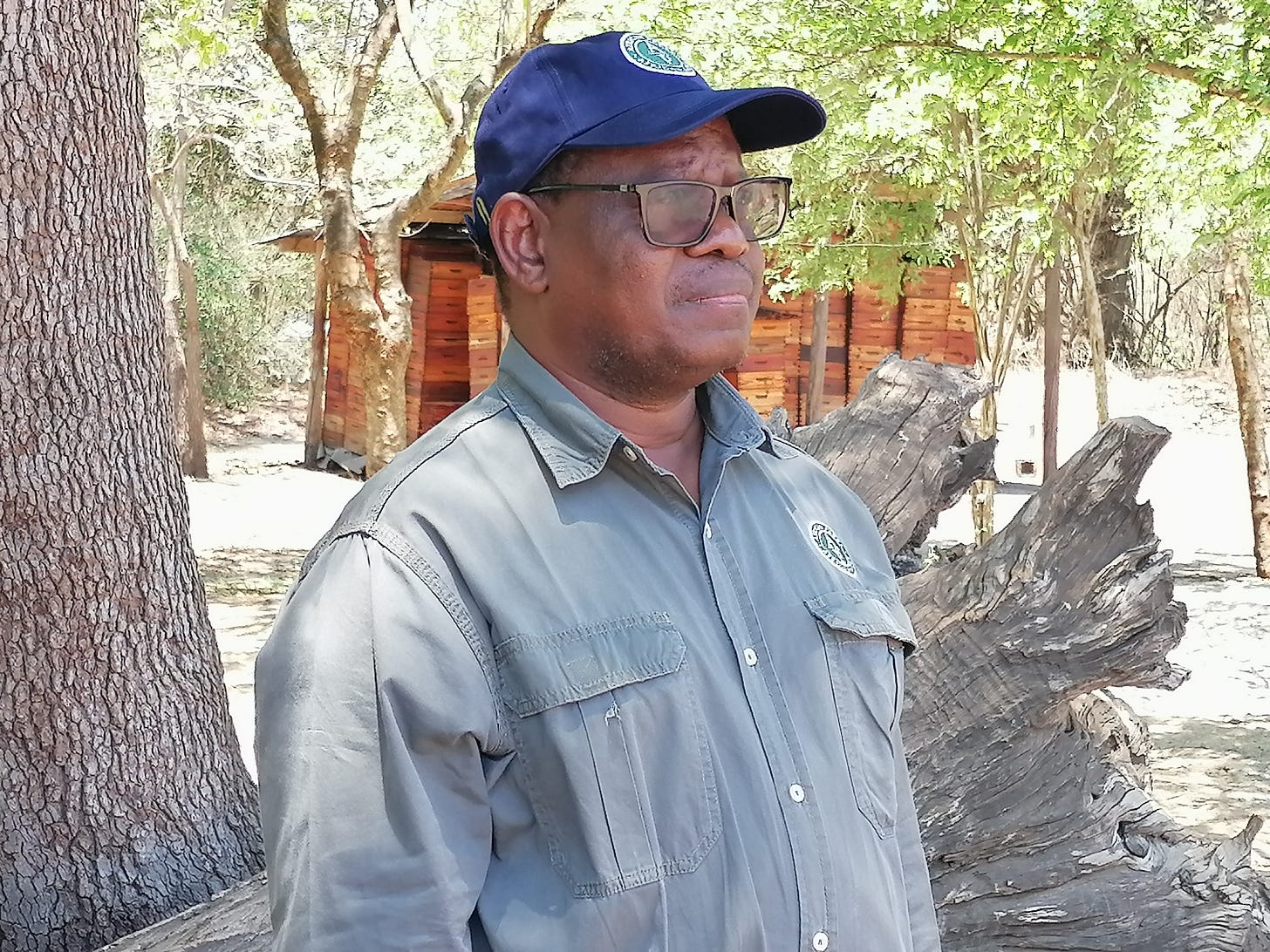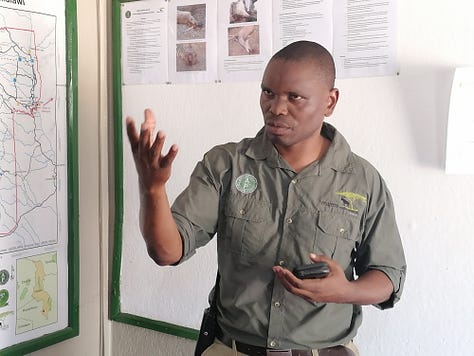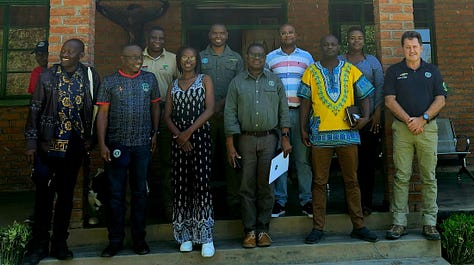WILD TALK - African Parks conduct orientation for news editors on wildlife related issues
The day long orientation aimed to spotlight wildlife conservation issues, government partnership, and provided insights into operational processes crucial for effective conservation management

CHIKWAWA, Malawi (Planet Defence) - African Parks, an international non-profit making wildlife conservation organization now operational in over 12 countries and managing 22 protected areas, recently conducted an orientation session for media house editors at Majete Park.
In 2003, when African Parks assumed management of Majete, the park was on the brink of collapse with many wildlife species facing extinction due to rampant poaching. Additionally, poachers posed a threat to the park’s indigenous hardwood species by logging for planks.
However, the situation drastically improved after African Parks intervened. They erected a solar perimeter fence and introduced the Big Five species, transforming the reserve into Malawi’s premier park and highly sought-after destination.
The editors orientation comes on the heels of Majete's 20-year celebration—a story of hope and resilience.
Sam Kamoto, African Parks' Country Representative, expressed gratitude to the media for its role in raising wildlife conservation and resource management awareness within the country.
Kamoto highlighted that over US$75 million has been invested in managing these protected areas, generating a total revenue of $6.7 million from African Parks-managed areas. He emphasized that, on average, $2.5 million is spent annually on managing each park, underscoring the significant costs of conservation. As part of its efforts in job creation, African Parks has established 560 permanent positions and employs numerous seasonal workers, aligning with the government's aim to reduce unemployment.
Kamoto remarked, “Majete's success story is a testimony of how nature rejuvenates with friendly human support. In 2003, the reserve was in dire straits with rampant poaching, charcoal burning, bushfires, logging and various environmental challenges. The result of our partnership with government is the restored reserve we witness today.”
During his presentation, Park Manager John Andedorff outlined objectives. “African Parks aims at restoration of Majete's biodiversity, delivering measurable economic benefits to local communities, and fostering enduring partnerships with government at all levels,” these are our key objectives.



News editors from key media houses namely; Nation, Times, Mibawa, Zodiak, Malawi Broadcasting Corporation and Planet Defence actively participated in this informative session.
In his reaction after the day long orientation, Richard Chirombo, Editor at Times Group, noted that the Majete experience revealed that human – wildlife interaction doesn't always lead to conflict as often perceived by the larger society.
He shared an anecdote, stating, “We saw an elephant bull turning its back on us. Majete well experienced tour guide Sam Chihana explained that it showed the elephant's trust in humans, despite an initial mock charge at its onlookers, indicating no harm intended.”
Chirombo also mentioned that observing wild dogs in a boma inside the park debunked certain myths. He clarified, “contrary to stray claims, wild dogs don't suck other animals' blood. They hunt for prey species and occasionally go hungry, needing effort and requisite energy to hunt collectively at least twice a day.”
As part of gender balance, female Editor Patricia Kapulula from Malawi News Agency in the Ministry of Information, noted there has been significant development in Majete over the past two decades under African Parks' stewardship.
She emphasized a need to tell these diverse stories to Malawians, that range from corporate social responsibility through scholarship grants to students living within the 5 kilometer radius within the peripheral of the park, income-generating activities for communities such as bee-keeping and advocating for extensive marketing and eco-tourism of the park.
Kapulula stressed, “We require regular awareness sessions of this nature to understand the link between wildlife conservation and economic development as part of the Malawi Vision 2063.”
In closing, she urged experts to attached value and protection of Malawi's remaining wildlife areas, not solely as tourism assets but for the future generations of Malawians to cherish and enjoy as part of posterity.
The orientation covered community outreach, law enforcement, wildlife monitoring, tourism and marketing strategies, among other aspects. Editors also had a wildlife drive to appreciate the species diversity present in the park.
#Planetdefence Subscribe to Planet Defence to read specialised content on environment



